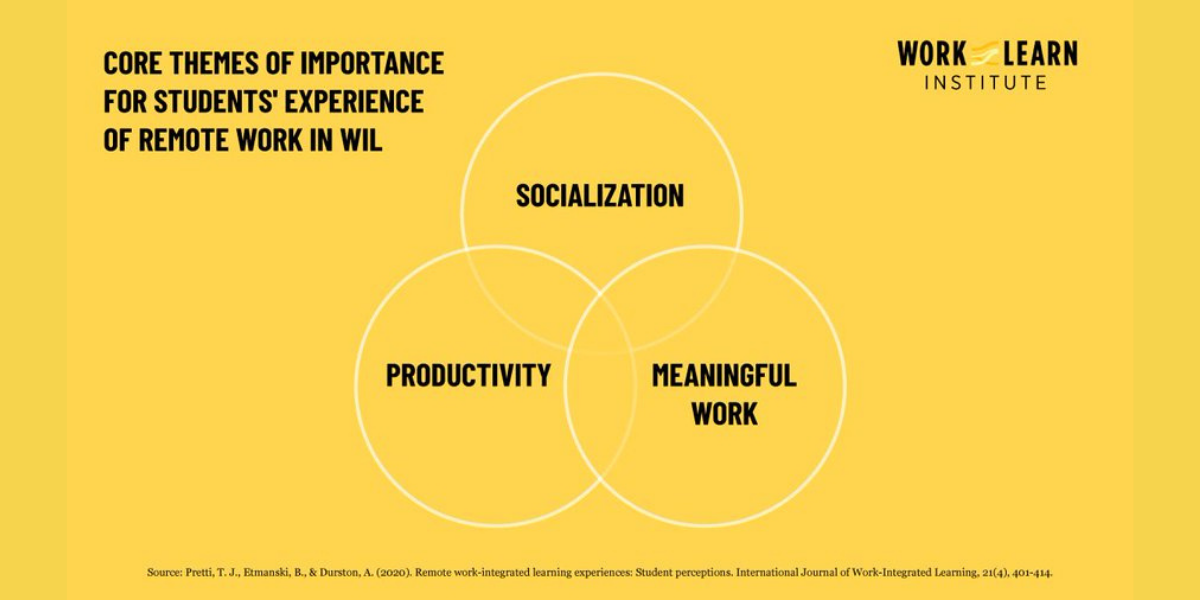Whether it is fully remote, or a hybrid of remote and in-person work, remote teams and work environments are here to stay. How you onboard remote talent may be the sticking point of whether they choose to stay.
When the global pandemic hit, companies quickly adapted by setting up their tech and employees for a work from home world. Almost two years later, the question isn’t can we maintain remote work but how can we do it better? For new employees working remotely, onboarding is key to establishing a sense of belonging. Research from the University of Waterloo’s Work-Learn-Institute (WxL), highlights the ways companies are engaging with their new employees remotely:
- Welcome messages. An email, letter or call from the manager, or senior leaders within the organization can go a long way to making new employees feel welcome. A public announcement to the team welcoming the newest addition can help them to feel like part of the team.
- Scheduled meetings. Managers who book a one-on-one with the new employee can use the time for goal-setting and specific task training while getting to know new team members.
- Introductory sessions. Whether it is a company-wide orientation, or a scheduled session with team members, Human Resources, or senior leaders, introductory meetings help remote workers understand their role and build camaraderie.
- Sharing resources like names and contact information lists, introductory schedules or plans for the first few weeks of work, training manuals or intranet sites for employees all help new remote talent to familiarize themselves with the organization.
What matters to Gen Z
When it comes to Gen Z, those born between 1996-2014, what else can be done to make their transition to the world of work easier? Our research on student’s remote work experience during the pandemic found three core themes that you can prioritize to help Gen Z talent in a remote work environment:
- Socialization:
- Set up one-on-one and team meetings.
- Implement virtual coffee breaks and socials.
Interaction, which is critical for role clarity, happens less often in a remote work environment. Opportunities to socialize through meetings and virtual events can help emerging talent understand workplace culture and build professional networks.
- Productivity
- Provide milestones and check in on progress.
- If priorities have shifted, make it clear what the new expectations are.
Gen Z needs flexibility and adaptability, as well as self-direction and independence, to create their own schedule for remote work.
- Meaningful work
- Start with a small task to assess a student’s capabilities.
- Increase the difficulty, which leads to higher commitment and ultimately to the conversion in the talent pipeline.
Provide the right environment and new tech talent can blossom to fill your talent pipeline. Don’t hesitate. Hire a co-op student now as the competition for brilliant tech talent is increasing as the digital economy booms.
About the Author:
 Tammy Kim-Newman is a business developer and tech talent specialist at the University of Waterloo, Canada’s #1 university for Computer Science, Mathematics and Engineering (Maclean’s 2021 University Rankings). She has 10+ years supporting industry partners with their early talent strategies and advocates for work-integrated learning. If you have questions about early tech talent recruitment strategies, please reach out to Tammy Kim-Newman.
Tammy Kim-Newman is a business developer and tech talent specialist at the University of Waterloo, Canada’s #1 university for Computer Science, Mathematics and Engineering (Maclean’s 2021 University Rankings). She has 10+ years supporting industry partners with their early talent strategies and advocates for work-integrated learning. If you have questions about early tech talent recruitment strategies, please reach out to Tammy Kim-Newman.
